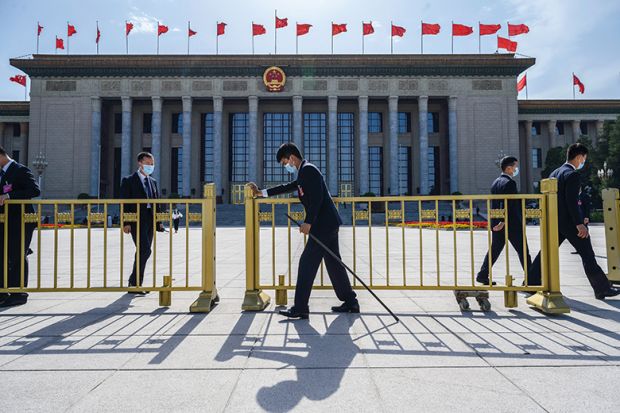The Chinese government needs to shore up its recent gene-editing legislation by closing loopholes that currently allow privately funded researchers to bypass rules applying to those who receive public funding, according to the organiser of an international event on gene editing.
Joy Zhang, founding director of the Centre for Global Science and Epistemic Justice at the University of Kent, who earlier this month convened the Third International Summit on Human Genome Editing in London, has warned that a significant area of Chinese research is still going unchecked.
In 2018, the actions of He Jiankui, a researcher who bypassed oversight boards at several hospitals to edit the genes of twin girls before birth, shocked the world, prompting international condemnation and calls for greater oversight in the field.
The event caused China to revamp its laws governing research practices, with its most recent 2023 measures significantly broadening the scope of ethics reviews beyond “conventional human subject research” to include human tissues, organs, fetuses and health records – and listing penalties for researchers’ failure to follow proper procedures.
But Dr Zhang warned that the legislation still failed to protect individuals participating in studies that fall outside the oversight of Chinese regulators, which currently include research that is funded by industry, philanthropists or crowdsourcing.
“There’s no provision on what they [researchers with such funding] can or can’t do at the moment,” she said. “In terms of genome editing, there’s actually no clear answer on who’s going to oversee this type of research.”
Beijing’s response in the aftermath of the 2018 case had muddied the water, she added.
Although the researcher involved, Dr He, was sentenced to three years in prison for seriously disrupting “medical order” and fined Rmb 3 million (£327,000) for illegal human embryo gene-editing using CRISPR-Cas9 technology, the case promptly “disappeared” from public dialogue, Dr Zhang said.
Since then, it has been difficult for anyone – including Chinese researchers who want to know more – to find information about the case due to censorship, she continued: “The Chinese government quite quickly wrapped up the court case and tried to push it under the carpet.”
Dr Zhang said that while other countries had loopholes around research ethics – with the US a prime example of the problem – it was especially harmful in China, where government censorship and fewer venues for public discussion made it more difficult to “spot problems early on”.
Beijing’s willingness to let Dr He continue his work has also confused the picture. Having been released from prison, Dr He has recently begun promoting plans to begin privately funded trials into the genetic disorder Duchenne muscular dystrophy.
“He’s been flaunting online that he’s going to develop this DMD therapy, and started talking to investors and patients,” Dr Zhang said. “The comeback of [He Jiankui] has created this image as if the past is in the past; that after a couple of years you can hop back on to the scene without any repercussions.”
She praised Beijing for making a “serious investment” in educating researchers and developing textbooks on research ethics, but she said the Chinese government should still do more to educate the public about informed consent and should commit to transparency in Dr He’s case, setting a clear line on research misconduct.
Dr Zhang credited Chinese researchers for continuing to push for accountability in their field, even as “authoritarian” and “nationalist” tendencies in Beijing had created an environment in which political leaders were less inclined to probe sensitive issues.
“The Chinese science community is a force that we can draw on to push for reform in China…even when that reform doesn’t necessarily come from the top down,” she said.
POSTSCRIPT:
Print headline: China criticised over gene editing
Register to continue
Why register?
- Registration is free and only takes a moment
- Once registered, you can read 3 articles a month
- Sign up for our newsletter
Subscribe
Or subscribe for unlimited access to:
- Unlimited access to news, views, insights & reviews
- Digital editions
- Digital access to THE’s university and college rankings analysis
Already registered or a current subscriber? Login







